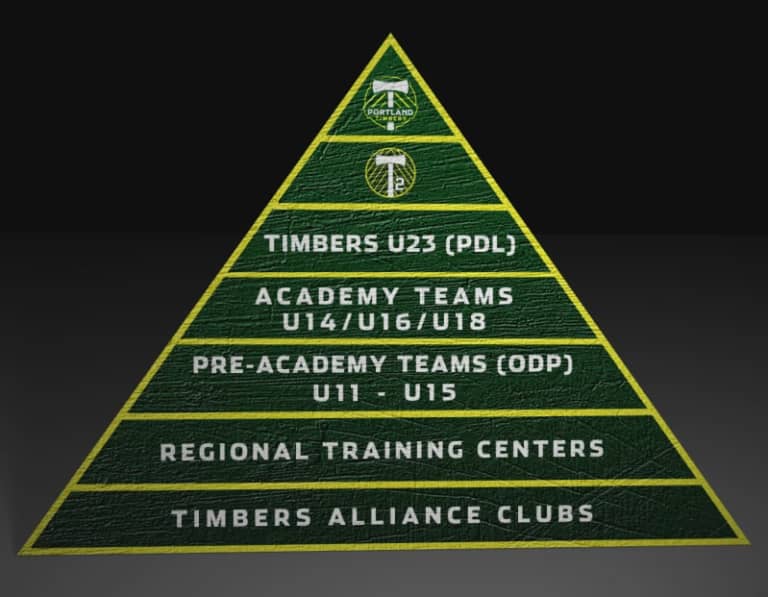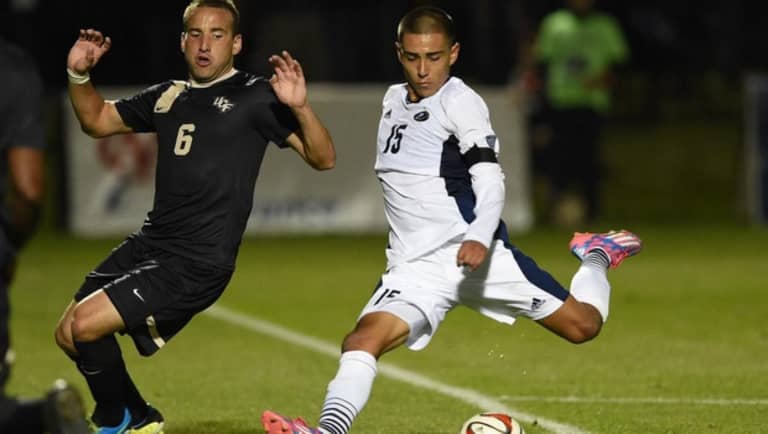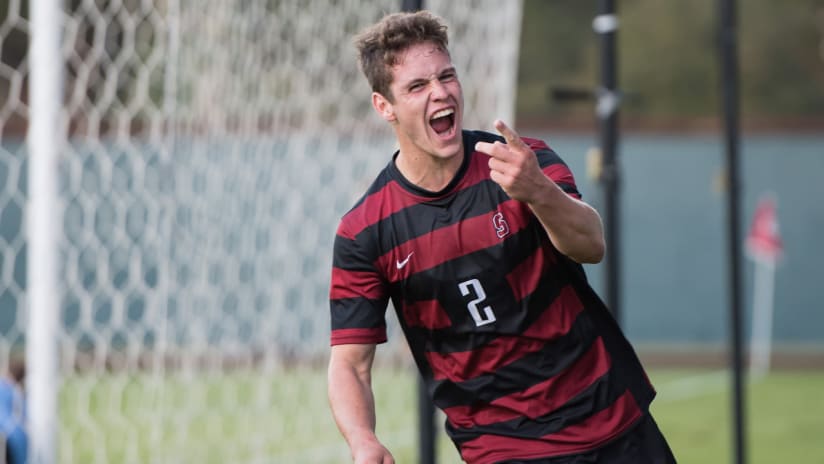Editor's Note: In this special three-part series, Timbers.com explores the growth of the burgeoning Timbers Academy. In Part I, it examines the overall structure of how it is set up and works, Part II takes a look at how it aims to develop players for the first team, and Part III shows what it means to be an Academy player and progress through the club's system.
-----------
PALO ALTO, Calif. – What is the Timbers Academy really like for the players on the inside? How do they experience the ups and downs of a long season and all the challenges of a grueling training regimen?
Timbers.com caught up with two recent Academy graduates, Foster Langsdorf (above) and Sam Werner, after a November practice session at Stanford University.
The two players took very different routes, however, to make it to the Timbers Academy.

Langsdorf, who grew up in Vancouver, Wash., said he first got involved with the Academy through Oregon's Olympic Development Program (ODP). He, like many other ODP players, made the leap up to the Academy for its inaugural season in 2013 to join some of his former ODP coaches—such as Academy director Mike Smith—who had already begun working with the Timbers.
Werner, in contrast, grew up in Montana. After he guest played for Mike Smith's ODP team, Werner kept in touch with the Timbers coaches and later received an opportunity to move to Portland to live with his grandfather and play for the academy.
Once at the academy, however, both Langsdorf and Werner quickly discovered just how different it was from the club environments that they had left behind.
"Every day, you're competing against the best players in Oregon," Langsdorf said. "Only eighteen players go on trips and will suit up, so it's like every day is a tryout for the next game. It's relentless, but it makes you better."
The pair described days when everything—the weather, the field conditions, the play—seemed to conspire against them, days when they felt like throwing in the towel. But those same days, the players noted, were what made them mentally tougher, made them players ready to move up to the next level and compete against ever tougher odds.
And in college, when the competition for playing time becomes fierce and the skill-level of opponents and teammates rises, Academy graduates learn quickly to adjust their games.
"If I take a bad touch, I could make up for it with my size," said former Timbers Academy player and current University of Washington midfielder James Nosack. "You can't get away with that sort of thing up here."
Another former Academy graduate, Jesse Garcia-Aguilar, now an attacking midfielder at the University of Akron, said that the pace and physicality of college soccer took him by surprise.

Jesse Garcia-Aguilar at Akron
"The biggest difference I'd say is the pace of the game; it's a lot faster," he said. "It's more physical as well. So that's something I needed to work on, playing quicker and moving off the ball."
Yet as hard as life in the Academy could be sometimes, both Werner and Langsdorf described how close they felt to the club and how critical to their development it was that they had the chance to train with the first team.
"It's a little bit like getting thrown in the deep end at first," Werner explained. "It's nice because you can tell that they're just so consistent with the technical stuff that we're not quite as consistent at. But at the same time, we could play there. There's obviously stuff we need to work on, but it's not like we were completely fish out of water."
"It's like we were almost a family," Langsdorf added. "Like there's a connection between the Academy and the first team stuff so you didn't feel completely alienated. You got to train and [first team head coach] Caleb Porter would come in and talk to us. You felt like there was a deep connection. It felt like you were at a club."
Academy director Mike Smith described how during a fall series of games between the Timbers and Seattle Sounders academies, Porter sat on the sidelines and watched the U-16 and U-18 teams. This, Smith said, is a tremendous experience for the players and exemplifies the club's developmental philosophy.
"I think that there's a top down philosophy that everyone buys into and that's part of the hiring and development of the club structure," he said. "I think we also must be one of the only clubs in MLS that's been fortunate to have first team assistant coaches and head coach come and do sessions for the Academy so they can come and keep tabs on the players."
Werner agrees. He noted that few of his Stanford teammates who had played for an MLS academy had also had the same sort of experience and interactions with the first team that he had with the Timbers.
"The first team staff would know plenty of us by our first name," he said. "Being able to be so close to the people at the next level, it's really easy to envision yourself being there and seeing the little things you need to change to hopefully make that jump at some point."
For now though, both Langsdorf and Werner admit they're still learning how to balance their social and academic lives with being high-performing athletes.
In his first season, Langsdorf appeared in 13 of Stanford's 19 games, including Stanford's final game of the season, a 1-0 overtime playoff loss to UC Irvine. In those 13 appearances, Langsdorf tallied a goal and an assist.
Werner didn't appear for Stanford last season, but he's targeted his sophomore year to try and make an impact in the program.
Both players' future in soccer and with the Timbers, though, is something they're taking one day at a time.
"I like to take things step-by-step," said Langsdorf. "I just want to focus and do as well as I can here and whatever happens after that will happen."












